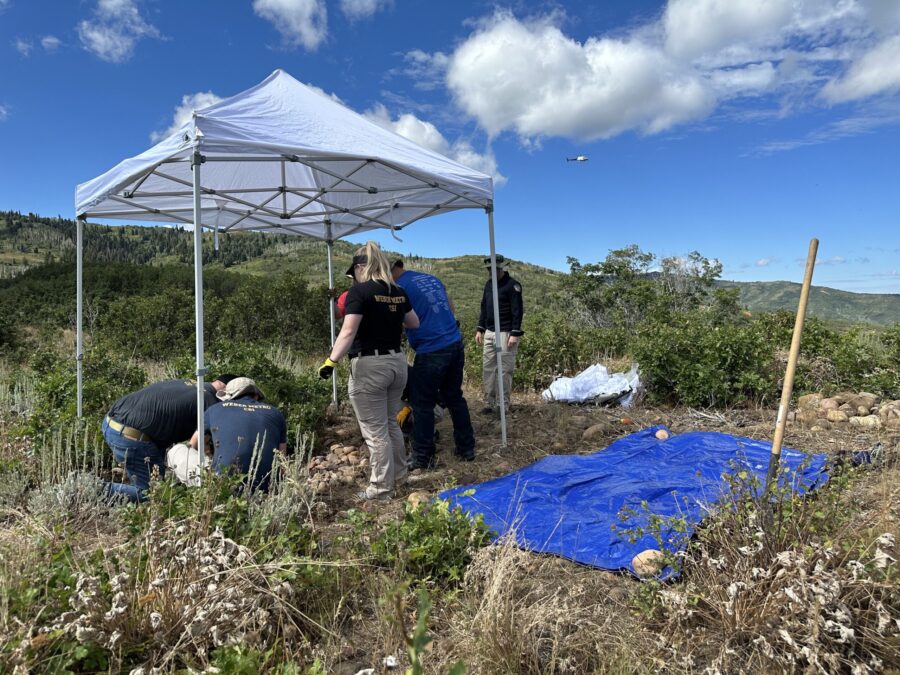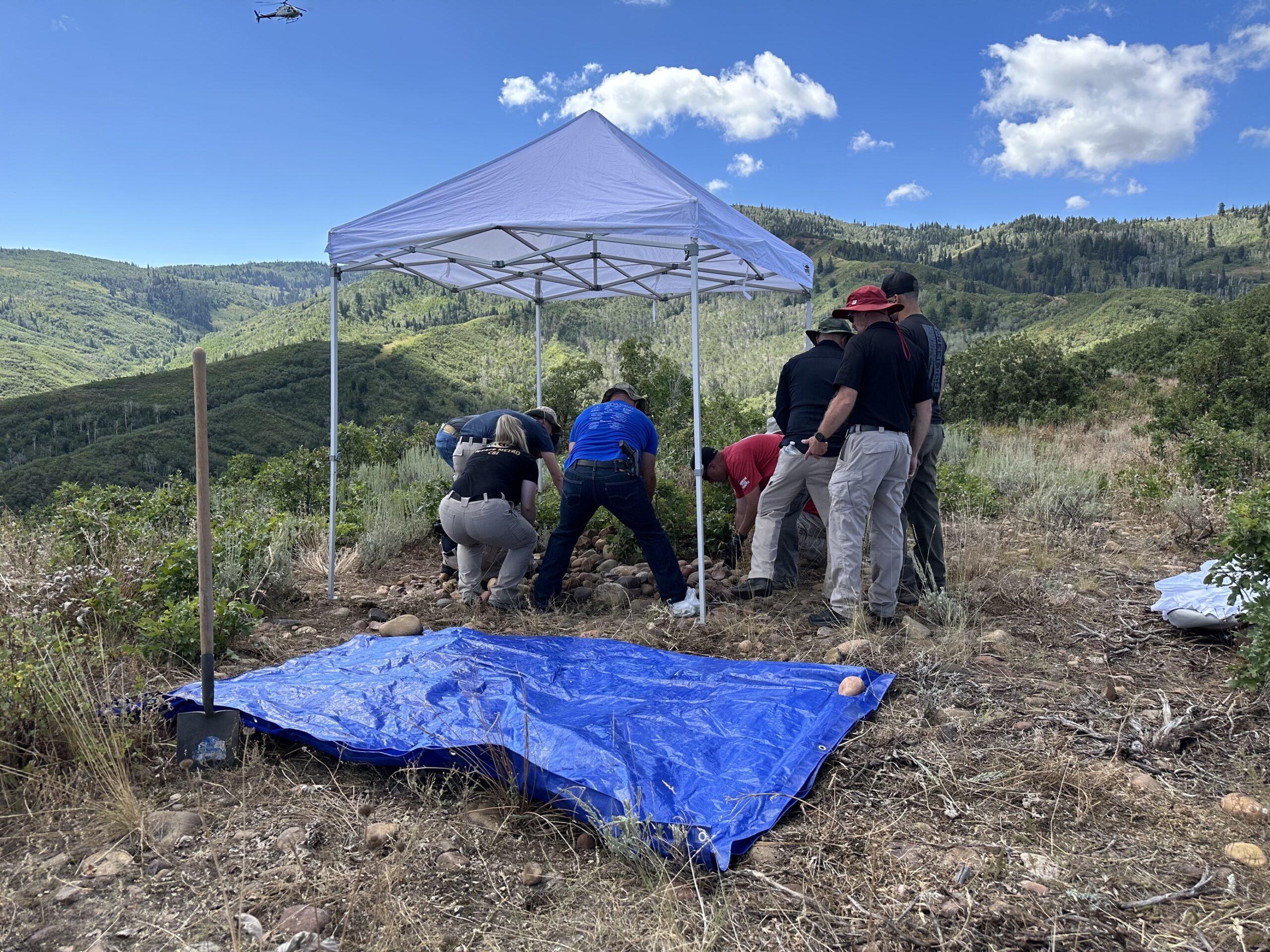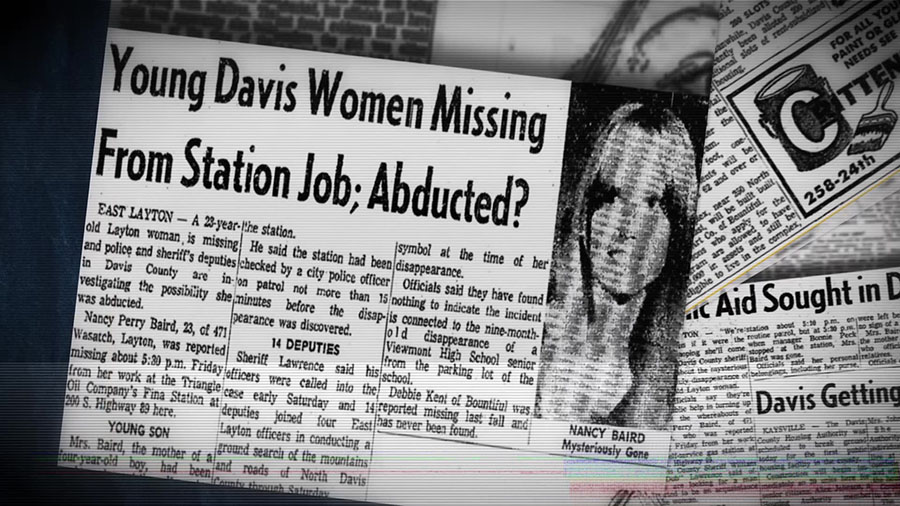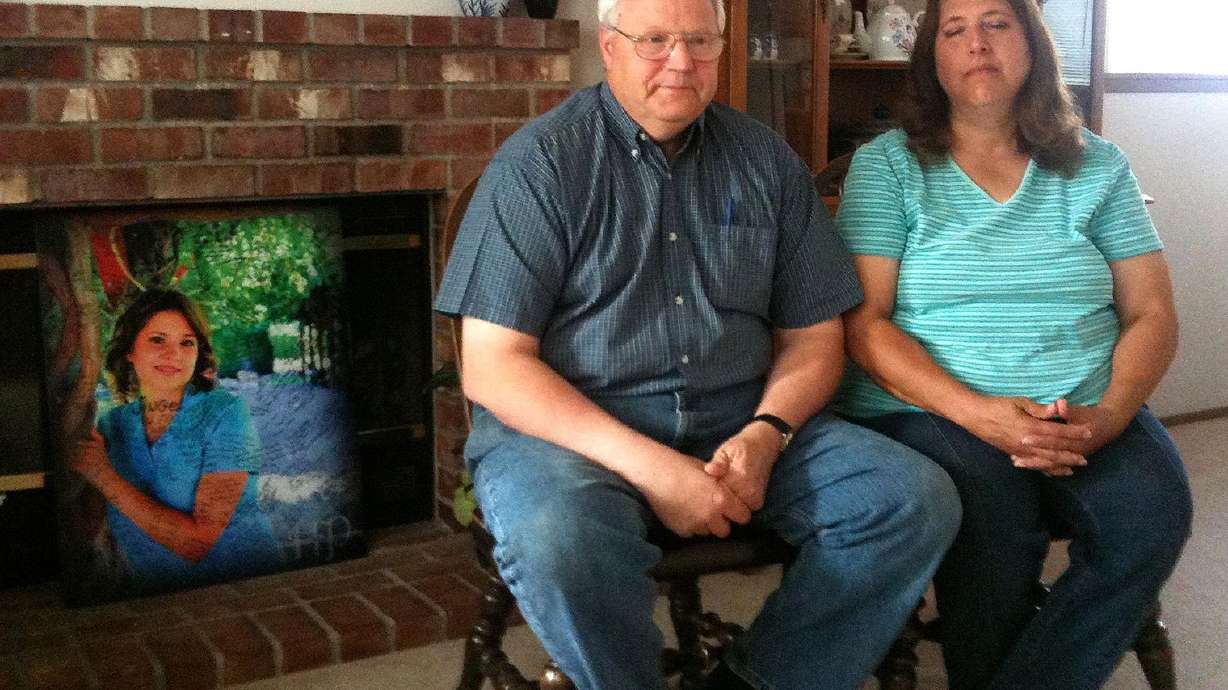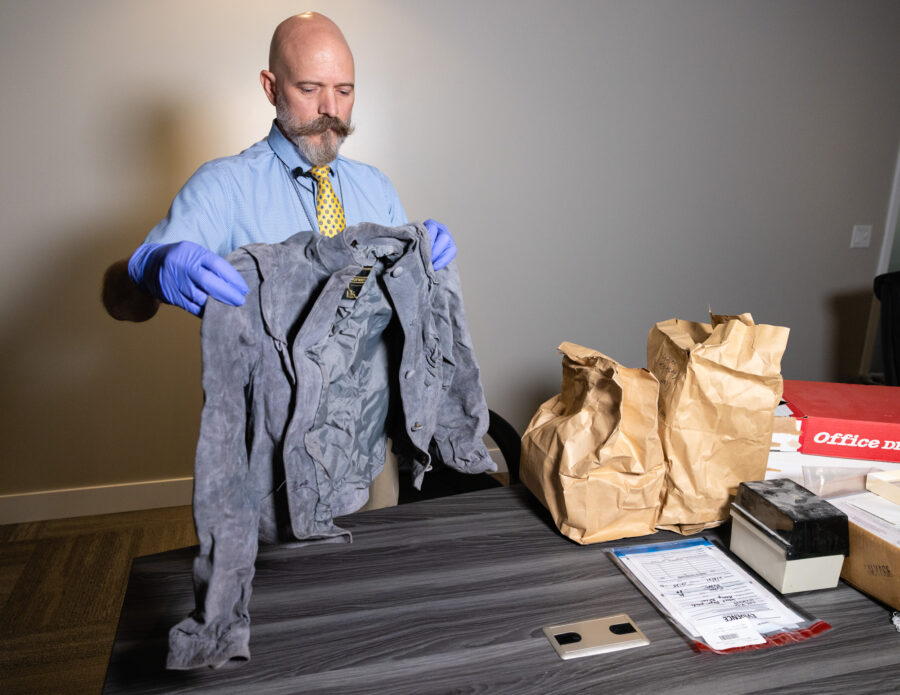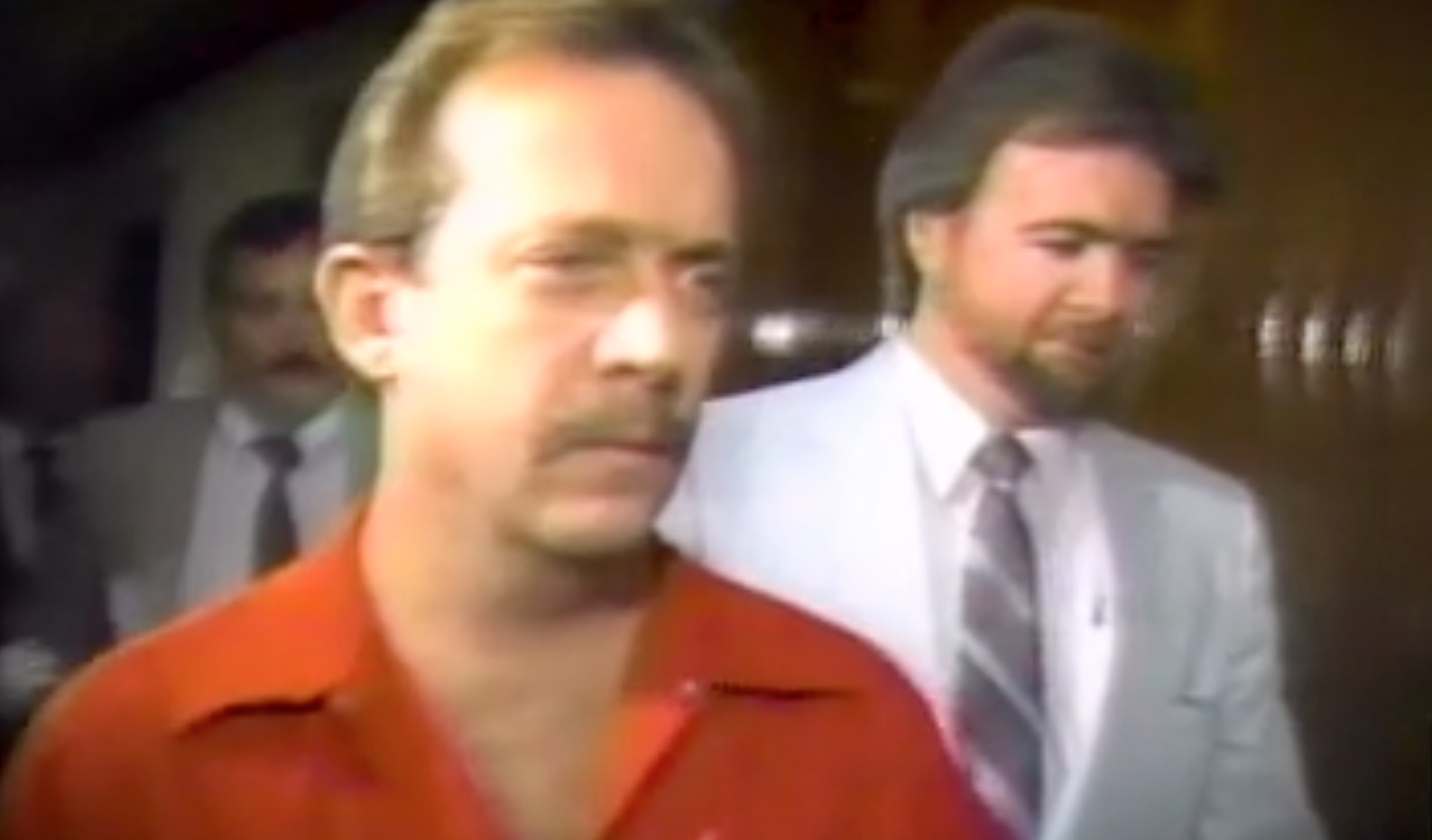Supreme Court questions ‘injection’ of religion into death penalty trial of Douglas Lovell
Feb 9, 2024, 6:27 PM | Updated: 7:14 pm
SALT LAKE CITY – Douglas A. Lovell has twice been sentenced to die for abducting and murdering a South Ogden woman in August of 1985. On Friday, Lovell’s attorney told the Utah Supreme Court he deserves a third shot at sentencing.
“In this death penalty case, Mr. Lovell had ineffective assistance of counsel,” appellate attorney Colleen Coebergh said.
It marked the fourth time over the last nearly 40 years that lawyers have argued in person before Utah’s highest court over issues in the case. The latest trip focused primarily on allegations of discussion of religious matters, such as Lovell’s excommunication from The Church of Jesus Christ of Latter-day Saints and “infected” testimony during a 2015 trial.
Origins of the case against Doug Lovell
In April of 1985, Lovell followed a South Ogden woman named Joyce Yost home from a supper club in Clearfield. Lovell sexually assaulted Yost in her own driveway, abducted her, and assaulted her again at his own home. After several hours, Yost convinced Lovell to let her go free, promising not to report what he’d done to the police.
Once safely returned home, Yost called police. A Clearfield police detective arrested Lovell a short time later on suspicion of rape. The Davis County Attorney’s Office then filed felony charges against Lovell.
Yost subsequently testified about the events at a preliminary hearing and the case was set for trial. Through a series of missteps, Lovell was allowed to leave custody in spite of a judge’s order demanding he be jailed pending the trial.
While out of jail, Lovell hired two different men to kill Yost on his behalf, in order to prevent her from testifying at the upcoming trial. Both of those would-be hitmen backed out, so on the night of Aug. 10, 1985, Lovell crept into Yost’s apartment through an unlocked window, slashed her with a knife and then allegedly took Yost into the mountains east of Ogden where he strangled her to death.
Yost’s disappearance caused alarm for her family and police, but it did not derail the criminal trial. A Davis County jury convicted Lovell on counts of aggravated sexual assault and aggravated kidnapping, even in Yost’s absence. A judge sentenced Lovell to the Utah State Prison on two terms of five years to life, with a mandatory minimum stay of 15 years.
Capital murder charge for the death of Joyce Yost
The South Ogden Police Department’s investigation into Yost’s disappearance stalled for several years, until Lovell’s ex-wife Rhonda Buttars confessed to a detective in 1991 that she’d helped Lovell destroy evidence after he killed Yost. The Weber County Attorney’s Office offered Buttars immunity from criminal charges if she, in exchange, cooperated as a witness.
Buttars twice carried a hidden audio recorder into the Utah State Prison and captured Lovell making confessions on tape. That evidence allowed the Weber County Attorney’s Office to file a first-degree felony capital murder charge against Lovell in May of 1992.
Lovell’s defense attorney entered into plea negotiations with prosecutors later that year. By the summer of 1993, the two sides reached an agreement: Lovell would plead guilty and lead investigators to Yost’s body, and in exchange, prosecutors would recommend the judge sentence Lovell to life in prison without the chance for parole.
That July, Lovell repeatedly took detectives to a site along the Old Snowbasin Road near Pineview Reservoir and told them that’s where he’d buried Yost’s body. Weeks of searches there failed to turn up any sign of human remains. As a result, the plea agreement was invalidated and the judge sentenced Lovell to death.
Taking back Doug Lovell’s guilty plea
Lovell attempted to withdraw his guilty plea in the aftermath of the death verdict, but the trial court prevented him from doing so.
In his first direct appeal of the sentence, Lovell argued his defense attorney had been ineffective, due in part to a conflict of interest. The Utah Supreme Court ruled against him, affirming the death sentence in 1999.
Lovell then petitioned the high court again over the trial court’s denial of his effort to withdraw the guilty plea, arguing the trial court judge had failed to properly advise him of all the rights he waived by pleading guilty. The Supreme Court sent that matter back to the lower court for further hearings, which again led to a Second District Court judge denying Lovell’s motion to withdraw.
Lovell appealed that decision and in 2011, the Utah Supreme Court agreed the sentencing judge had made a technical error that invalidated Lovell’s death sentence.
The Supreme Court sent Lovell’s case back to Utah’s Second District Court, where it was set for a trial. That trial took place in March of 2015.
Conceding guilt for killing Joyce Yost
Because of the strong evidence against Lovell, including his own prior admissions in court to Yost’s murder, the trial defense team conceded Lovell’s guilt before the jury.
Yost’s murder took place at a time before Utah law allowed for a sentence of life without parole. Because of that, Lovell was allowed to choose whether the jury would have the option of choosing life without parole at sentencing. He chose instead to be sentenced under the law as it existed in 1985, meaning the jurors were only allowed the choice of death or life with the possibility of parole.
Utah law requires juries in capital cases eligible for the death penalty to weigh “aggravating” and “mitigating” factors when deciding for or against death. In Lovell’s 2015 trial, the jury unanimously decided the aggravating factors presented by the prosecution outweighed the mitigation evidence supplied by the defense.
Lovell lost his bid for a chance at parole, receiving a death sentence for the second time.
Doug Lovell’s current appeal
Lovell immediately filed a new appeal, focused on allegations his trial attorneys were ineffective. The appeal raised many specific issues, but chief among them were questions about whether witness testimony during the trial about religious matters might’ve prejudiced the jury.
During the sentencing phase of the 2015 trial, Lovell’s defense attorneys had called multiple former bishops for The Church of Jesus Christ of Latter-day Saints who previously ministered to Lovell at the Utah State Prison. Each of those men had intended to speak to their opinions that Lovell was remorseful and deserved a chance for parole.
The testimony during the trial had at times veered into discussion of Latter-day Saint doctrine, Lovell’s excommunication from the church after Yost’s murder, and heavenly forgiveness. In her appeal, Lovell’s appellate attorney, Colleen Coebergh, argued the trial defense team failed to object to improper topics.
“Injecting, in front of a jury, religious topics, is a corrupt practice. It cannot be tolerated,” Coebergh said during oral arguments before the Utah Supreme Court Friday.
Coebergh told the justices such discussion of religious doctrine during the trial improperly signaled to jurors they could make decisions based on factors beyond the factual evidence of the case. Some of the justices also pursued this line of thought when questioning Mark Field, an attorney for the Utah Attorney General’s Office.
“I’m talking about subtle influences,” Associate Chief Justice John Pearce said. “I’m talking about changing the way they view the evidence that Mr. Lovell was trying to put on about being a changed person.”
“Fair enough,” Field replied.
“I think you concede it was improper for the prosecution to inject this into the trial,” Pearce said.
“I do,” Field replied.
However, Field argued that didn’t warrant sending Lovell’s case back for a new trial or sentencing.
“This particular testimony was a small fraction of the evidence that came in,” Field said. “Even assuming that counsel was deficient in not objecting at that point, I don’t think that there’s a reasonable likelihood that there would’ve been a different outcome but for that.”
Justice for Joyce Yost
There is no timeline for when the Supreme Court will issue a decision on Lovell’s latest appeal.
Lovell, 66, remains incarcerated at the Utah State Correctional Facility. Previous reporting by KSL revealed the Utah Department of Corrections has moved him out of maximum security under a program called Last Chance that rewards death row inmates for good behavior.
The murder of Joyce Yost, the search for her remains and the criminal case against Douglas Lovell are covered in detail in the KSL Podcasts series COLD season 2: Justice for Joyce.


